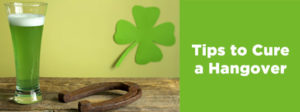

With 149 million people in the United States celebrating on Saint Patrick’s Day – an incredible figure for a holiday that is not legally recognized as a holiday.
St. Patrick’s Day is the most popular holiday for beer drinking with the average person having 4.2 drinks and 32% of adult admitting to binge drinking. On St. Patrick’s Day beer sales increase 174% and spirit sales increase 153%.
Unfortunately, a holiday that celebrates drinking, leads to drunk driving and alcohol-related accidents. These accidents are often fatal. In 2018, 73 people in the US were killed in drunk driving crashes over on St. Patrick’s Day.
If possible; Plan a Sober Ride
Drinking during Saint Patrick’s Day is not uncommon. But if you do choose to enjoy a cocktail or two, keep yourself and those around you safe by planning for a sober ride. Ask a sober friend or family member to take you home. Take an Uber, planned ride or even an old fashioned cab if that is your preferred method. You can even take a bus or train depending on where you live and where the party is from. Even in your sober ride, act appropriately so your driver can pay attention to the road. Remember, your driver may be sober, but there’s likely another driver near that is not.
Don’t Drink and Drive:
This first Saint Patrick’s day safety tip is obvious for a reason. Drinking and driving is not only dangerous to yourself but also everyone else in the vicinity of your vehicle. It should come as no surprise that January 1st has the highest percentage of deaths related to alcohol, according to the Insurance Institute for Highway Safety data. Between 2007 and 2011, 42 percent of all traffic deaths during the holiday were directly caused by alcohol. Keep others from driving while intoxicated by suggesting they use other methods, like an Uber.
Party at someone’s house sleepover if possible or have a sober driver!
Eat Dinner:
First if going out at dinner have a full stomach since it is a great way to avoid alcohol poisoning.
Try to consume foods high in protein such as cheese, meat and nuts. These types of food will slow down the absorption of alcohol in the digestive system. This will give the alcohol more time to metabolize in the body resulting in a lower risk of alcohol poisoning. Our liver metabolizes about one alcoholic drink per hour. A good rule of thumb is a 12 oz. beer = 4-5 oz. of wine = 1.5 oz. of hard liquor. By sipping a drink rather than chugging it, your body will have more time to metabolize the alcohol which will result in less of a hangover. Consider ordering an appetizer if you’re out at a restaurant or snack on nuts while drinking at a bar.
Pet Safety:
Nothing frightens pet’s more than sudden loud noises. Extra attention must be given so your pets won’t run away in a panic. Scared, running pets can be hit by cars, cause accidents, and become lost…not to mention, frequently bite people if scarred or threatened.
Wait to Post on Social Media:
Yes, it’s tempting to document your holiday celebrations online with friends and family, but recommended is waiting until you’ve returned home to share. You never know who’s looking at your account and what their intentions may be.




